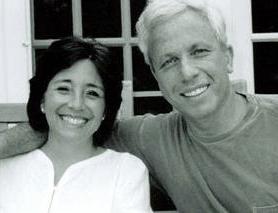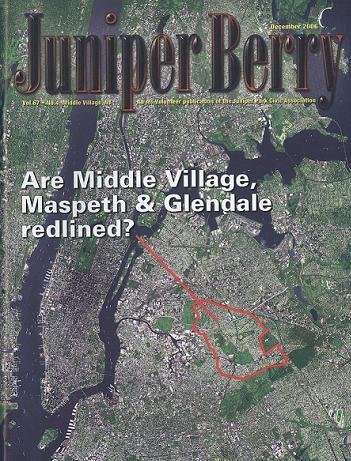Ninety-nine years ago, New Yorker Teddy Roosevelt proposed what he called “a very radical measure” — public financing of certain election activities to reduce the power of moneyed interests over elected officials. President Roosevelt knew that if the public lost faith in the honesty of democratically elected officials, then they could lose faith in democracy itself.
Today, few doubt that there is a culture of money and corruption in Albany, and that we are governed not by checks and balances but instead by checks and more checks — and even cash. In a recent statewide survey, 58% of New Yorkers believe that special interests have too much influence on elected officials in our state.
When there is a culture of corruption in government, there is a crisis of confidence in government.
CAMPAIGN FINANCE REFORM
Our state lags far behind almost every state in the union in campaign finance innovation. Individuals, for example, can give a statewide candidate $50,100— an amount greater than the yearly wage of many New Yorkers.
According to Common Cause, a nonprofit, nonpartisan citizen's lobbying organization promoting open, honest and accountable government, less than one percent of New Yorkers make a direct political contribution to a state legislative candidate or supporting party committee; also, over 55% of the contributions made by individuals in New York State would have been illegal on the federal level.
I’ve spent 34 years working on this issue, from my 1972 book Who Runs Congress?, to my work on the 1999 NYC Campaign Finance Reform, to my 2002 book, Selling Out.
Here are my suggestions for Albany:
1. Enact a Voluntary Public Financing System based on NYC’s system that’s often cited as a model for the country. Such a program would:
o Give statewide and legislative candidates a 4 to 1 match for small donations up to $250.
o To be eligible, candidates would have to agree to an overall spending cap — and all candidates in the system would have to prove they have a viable candidacy by initially raising a specified amount from small donors.
o The match could be increased up to 6 to 1 for candidates facing a high-spending opponent who has opted out of the system.
o Incumbents not facing a challenger, or facing only token opposition, would not be eligible for the match.
2. Stop “bait and switch” candidates who shift funds to future races. State campaign finance law allows a candidate to transfer funds collected for one race into accounts set up to elect him/her to a completely different office. A donor giving funds to someone they think would make a good comptroller might find their cash used against the donor’s wishes to elect that politician to, say, governor. Unspent funds should be returned and not built-up into war chests to scare off potential opponents years later.
3. Ban corporate donations to political candidates or political parties. New York should join 22 states, New York City and Washington to enact this common-sense reform. Texas, for example, banned corporate donations in the early 1900’s. New York shouldn’t lag 100 years behind Texas when it comes to any reform measure. A total corporate ban is also important because some industries are major state contractors, and donations from these industries have given rise to the reality and appearance of a “pay-to-play” system — where politicians award state contracts to large donors.
4. Lower contribution limits by individuals. It’s ludicrous, for example, that the maximum gifts for Governor and Attorney General are ten times larger than for U.S. Senator and NYC Mayor. The maximum gift should be lowered from $50,100 to $5,000.
5. Crack down on loopholes by corporations and subsidiaries. Donations from union locals, or subsidiaries of corporations, should be presumptively considered a donation from the parent corporation or union.
6. Require comprehensive disclosure. Donors should be required to disclose the name of their employer, their occupation and their profession. Paid employees of unions or corporations, which donate to a candidate, need to disclose how much time they spend “volunteering” for a candidate when their time is akin to an in-kind contribution.
7. Limit the use of campaign contributions to campaigning. New York allows campaign contributions to be used for spending related to an official's role as a public or party official. This loophole allows incumbents to use campaign donations for essentially personal uses.
8. Strengthen the State Election Board. Right now, candidates understand that the election board is a comb without teeth, an entity in name only without the power or staff to oversee campaign abuses. Bizarrely, while the NYC campaign finance board investigates almost everything, the NYS equivalent investigates almost nothing. Let’s create a real watchdog so candidates could have a better “conscience,” which H.L. Mencken defined as “the sense someone may be looking.”
9. Strengthen law enforcement. Create a special Campaign Finance Unit in the Attorney General’s office to crack down on election law violations — even without the above reforms.
LOBBYING REFORM AND ETHICS COMMISSION
The First Amendment explicitly protects lobbyists who exercise the right to “petition the government for a redress of grievances.”
Yet it doesn’t say that lobbyists can compromise the integrity of elected officials with a bribe, gift, or promise to raise funds. Here are some common-sense lobbying reforms:
• Gift Ban: The recent decision of the Temporary Commission on Lobbying to prohibit gifts of more than $75 per year didn’t go far enough. There should be a complete ban on such gifts.
• Fundraising Restrictions: Legislative fundraising should be banned during legislative sessions in and around Albany (except of course for members representing those districts).
• Shut the Revolving Door: Public officials should not court moneyed interests to secure a well paid lobbying job after their term expires. There should be a three year waiting period during which time former officials in the legislative, executive or judicial branches can't be paid to lobby state officials. High ranking staff would be included in this expanded moratorium.
• Honoraria Ban: State officials, legislators and senior staff should not be able to receive honoraria while in office, and should be required to wait three years before receiving honoraria from entities they directly affected by having made a funding or regulatory decision.
• Expanded Definition of “Lobbying.” New York requires individuals and organizations that lobby state agencies to report their efforts to influence regulations, rules or ratemaking activities. Incredibly, New York doesn’t require lobbyists, or their clients, to report efforts to influence agency purchasing decisions, granting permits, or enforcement actions. Efforts by corporations to obtain contracts and grants — the most prevalent type of lobbying — isn’t considered “lobbying.”
• Create an Independent Ethics Commission with Broad Jurisdiction. As NYPIRG points out, of 39 states with external oversight of state government through an ethics commission, New York is one of six which doesn’t give its commission authority over the legislature.
New York State should create independent ethics commissions with authority to discipline legislators and expanded powers to refer any ethics, lobbying or honoraria cases to the Attorney General for criminal prosecution. The commission should be non-partisan and make its findings available to the public and the Attorney General. The Attorney General should also have concurrent jurisdiction with this commission.
At Albany, donors count far more than voters. We’re being guided by the Golden Rule of Politics — he who has the gold, rules.
So New York needs to go beyond simple campaign reform. We need a total reconstruction of the way campaigns are financed and our legislators operate. Only then will voters regain confidence in our political system.
Mark Green is the founder and president of the New Democracy Project, is the author/editor of 19 books and a commentator, public interest lawyer, former New York City Public Advocate and Democratic nominee for Mayor of New York City in 2001. He is currently lecturing at New York University and appears weekly on a public affairs television program on NY1 with Ed Koch and Al D’Amato.



